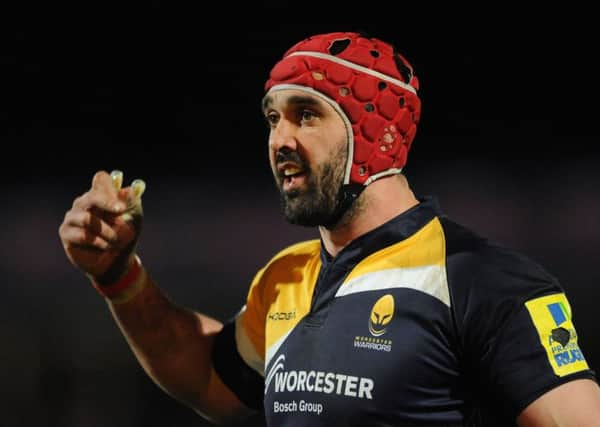Rugby rules must be ‘rewritten’ to avoid brain damage


Martin Raftery, World Rugby’s chief medical officer, said that the tackle is most likely to be the focus of any rulebook changes.
Mr Raftery said a safety review is under way which could lead to rewriting the rules around tackling. World Rugby is reviewing 900 videos of concussions sustained by players during matches.
Advertisement
Hide AdAdvertisement
Hide AdMr Raftery said the plan was to consider changing “the laws of the game or change whatever it is to make the game safer”.
Speaking on a BBC Scotland documentary to be broadcast tonight, he said: “The biggest area that we think, that we know, where concussion is going to occur is in the tackle, so that will help us to look at the tackle and see what we can do to make it safer.”
Asked whether this means tackle laws might be “tweaked”, he said: “It could be. I think that my job is to identify risk and then look for solutions for the law-makers to make the changes that will bring about protection of the athlete.”
The programme is presented by former Scotland international John Beattie.
Beattie, 57, said yesterday: “Rugby is trying to find out where these concussions happen.
“Are players bigger and stronger now and is there something happening in the tackle that we need to change?
“You can’t have a major sporting event watched by millions on television and someone’s knocked out, when that’s not the aim of the game.
“The aim of rugby is to score tries and show skill and flair. I think rugby realises they’ve got an issue here and they are trying to address it.
Advertisement
Hide AdAdvertisement
Hide Ad“It is more important to have a sport that is healthy and inclusive than a sport that is just collisions and damage.
“I’ve changed the way I look at rugby from when I was a youngster. I look at rugby now, like lots of people, and think ‘Someone’s head does not have to go through that in life, that’s not why I’m here to watch this fantastic game of rugby’.
“The game is looking at the laws. I think it’s an incredibly forward-looking step.”
In the documentary, Beattie visits a hospital in Boston, Massachusetts, to speak to Anne McKee, a scientist working in a research team that has examined the brains of former American footballers and found a new kind of dementia called chronic traumatic encephalopathy.
The researchers believe it causes symptoms such as personality change, mood swings and memory loss, and is linked to repetitive blows to the head on the pitch.
The documentary reports that the NFL, the National Football League, has introduced a range of rule changes including a straight ejection from the game for a player deemed responsible for an instance of head-to-head contact. The number of concussions in the sport in the past three years has fallen by 36 per cent.
Rugby and the Brain: Tackling the Truth, is on BBC One tonight at 8:30pm.